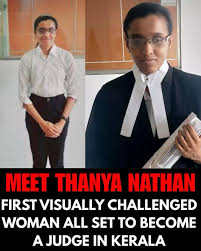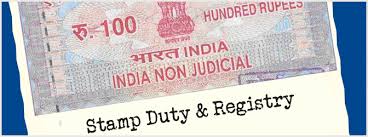@JUDGMENTTAG-ORDER
P. Ubaid, J.@mdashIn April 2004, the revision petitioner and the first respondent herein thought of running a public telephone booth jointly, and they executed an agreement. Some amount was received by the revision petitioner herein in the said transaction from the first respondent, but they could not start the telephone booth due to some other reasons. Later the dispute was resolved, and the revision petitioner agreed to return the amount received by him. Accordingly, a cheque for 70,000/- was issued in discharge of the said liability. When the first respondent presented the cheque for collection it was bounced due to insufficiency of funds, and when he failed to make payment on demand statutorily made, the first respondent initiated prosecution under Section 138 of the Negotiable Instruments Act before the Judicial First Class Magistrate Court No. II, Thrissur as S.T. 1209 of 2005.
2. The revision petitioner entered appearance in the trial court, and pleaded not guilty to the accusations. During trial he maintained a defence that the amount received by him was only 60,000/-, but the revision petitioner some how obtained a cheque for 70,000/-. Thus while admitting the execution and genuineness of the cheque in question the revision petitioner disputed the correct amount due. Though he pleaded such a defence no evidence was adduced in defence by the revision petitioner. The complainant examined himself as PW1, and he also marked Exts. P1 to P6. The trial court found the revision petitioner guilty, and on conviction he was sentenced to undergo simple imprisonment for three months. With the object of doing substantial justice to the complainant in view of admitted liability, the trial court also directed the revision petitioner to pay 70,000/- as compensation to the complainant under Section 357(3) Cr. P.C.
3. Aggrieved by the conviction and sentence, the revision petitioner approached the court of Session, Thrissur with Crl. A. 808/2008. In appeal the learned Additional Sessions Judge (Adhoc I), Thrissur confirmed the conviction and sentence, and accordingly dismissed the appeal. Now the accused is before this court in revision challenging the legality and propriety of the conviction and sentence.
4. The first respondent remained absent in spite of notice given to him. On hearing the learned counsel for the revision petitioner, and on a perusal of the case records, I find no reason or ground to admit the revision to files. I find that with some modification in sentence this revision petition can be disposed of.
5. As already stated, there is not much dispute regarding the facts in the case. Admittedly, the revision petitioner had incurred some liability under an agreement, and according to him it is only 60,000/-. It has come out in evidence that the cheque in question was issued subsequently and it stands explained that on mediation when the parties could not proceed with the plan of starting a telephone booth the amount was settled, and accordingly as agreed by the revision petitioner a cheque for 70,000/- was issued, inclusive of the loss incurred by the fist respondent. Anyway, as regards the original liability or the execution of the cheque there is practically no dispute, and the revision petitioner would dispute only the exact amount due from him. The amount is not payable under the agreement between the parties, but under the cheque admittedly issued by the revision petitioner. The cheque and the agreement were not simultaneously executed. The complainant has his own explanation why there is a difference of 10,000/-. I find that the amount is in fact payable by the revision petitioner as a debt incurred by him voluntarily, and that the cheque was also voluntarily and consciously executed by him for 70,000/-. Thus I find that the complainant has well proved the case on facts as regards the liability of the revision petitioner to pay 70,000/-.
6. The Ext. P3 intimation will show that the cheque in question was dishonoured due to insufficiency of funds. The Ext. P4 statutory notice was sent by the complainant in time, and the complaint was also filed in time. The revision petitioner has no case that he had sufficient funds in his account, or that the cheque was bounced on some other ground. He has also no explanation why he did not send reply to the statutory notice, disputing the correctness of the amount, if his case is true. Thus I find that there is no scope at all for interference in revision in this case, on the ground of any illegality or irregularity or impropriety.
7. The learned counsel for the revision petitioner made request to grant some reasonable time to make payment of compensation in the trial court. He also made a request for modification in sentence. I feel that the first respondent is not in fact interested in sending the revision petitioner to jail. His concern is only to get the amount due, and he is satisfied with the direction to pay compensation. Otherwise, he would have turned up to contest this revision. In the above circumstances, I feel that the jail sentence can be reasonably reduced to the minimum possible under the law, when the direction to pay compensation will do substantial justice to the complainant. With this modification in sentence, the revision is disposed of as follows, without being admitted to files.
a. The sentence imposed by the court below will stand reduced to imprisonment till rising of the court.
b. The direction to pay compensation with default sentence thereon, is maintained.
c. The revision petitioner will surrender before the trial court to serve out the sentence, and make payment of compensation voluntarily, within 5 months from this date, on failure of which steps shall be taken by the trial court to enforce the sentence and recover the amount of compensation, or enforce default sentence.

